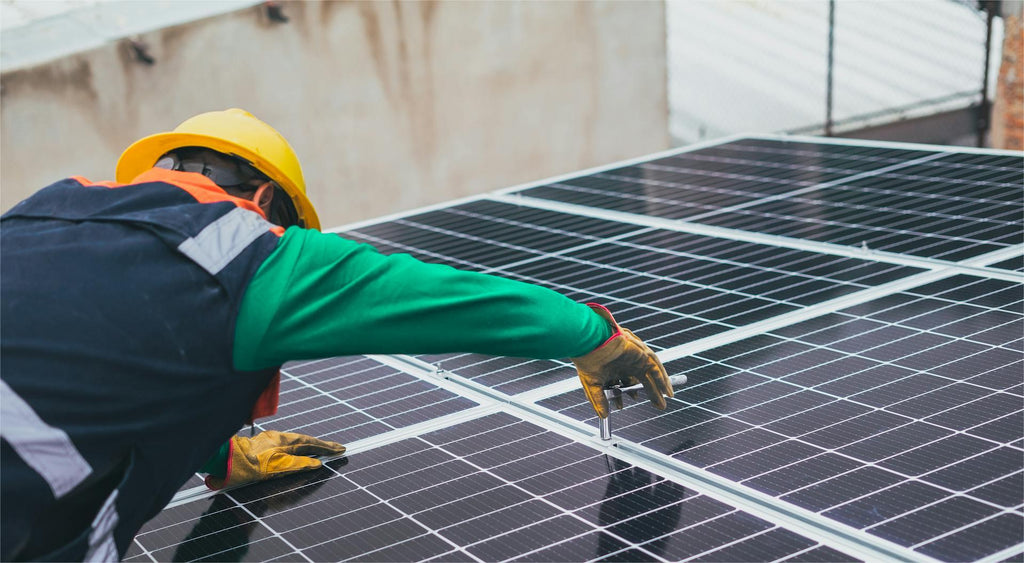Unlock the Secrets to Boosting Your Solar Inverter's Lifespan and Performance!
In the realm of renewable energy systems, solar inverters play a pivotal role in converting the direct current (DC) generated by solar panels into usable alternating current (AC) for our homes. As crucial components of solar energy systems, these devices not only facilitate energy conversion but also ensure that the energy produced is efficiently utilized. However, like any other equipment, solar inverters require proper care and maintenance to function optimally over the years.

This article aims to provide you with actionable tips that will help you maintain and enhance the performance of your solar inverter, ensuring it operates at peak efficiency. Whether you're a seasoned solar energy user or new to the technology, understanding how to care for your inverter is essential. By implementing these strategies, you can enjoy long-term benefits, including improved efficiency and substantial cost savings on your energy bills.
Investing time and effort in proper solar inverter care can lead to a longer lifespan for the device, minimizing the need for costly repairs or replacements. Let's dive into these essential tips that will help you get the most out of your solar inverter!
Tip 1: Regular Cleaning of the Inverter
Keeping your solar inverter clean is crucial for its performance. Dust, dirt, and debris can accumulate on the inverter's surface, obstructing airflow and leading to overheating. This can severely impact its efficiency and lifespan. A simple routine of wiping down the inverter with a soft cloth and ensuring that vents are free from obstruction can go a long way. Regular cleaning not only enhances performance but also helps you spot potential issues before they escalate, ensuring your inverter continues to operate smoothly.
Tip 2: Monitor Temperature Levels
Temperature plays a significant role in the efficiency and longevity of solar inverters. Most inverters function optimally within a specific temperature range. High temperatures can lead to decreased efficiency and potential damage. It's essential to monitor the ambient temperature around your inverter, ensuring it's not exposed to excessive heat, such as direct sunlight or enclosed spaces that can trap heat. Installing a temperature gauge can help you keep track and make necessary adjustments to maintain ideal conditions.
Tip 3: Check Connections and Wiring
Secure and corrosion-free connections are vital for optimal inverter performance. Loose or corroded wiring can lead to energy loss and even pose safety risks. Periodically inspecting the connections and wiring of your inverter can help you identify any issues early. If you notice any signs of wear or damage, it’s crucial to address them immediately to avoid further complications. Ensuring that all connections are tight and clean can significantly enhance the reliability of your solar energy system.
Tip 4: Schedule Regular Maintenance
Having a professional inspect your solar inverter periodically is one of the best ways to ensure its longevity. Regular maintenance checks can help identify potential issues that may not be visible during regular use. An expert can clean internal components, check for any wear, and ensure that the inverter is functioning at peak performance. Scheduling maintenance at least once a year can save you from unexpected repairs and give you peace of mind.
Tip 5: Update Firmware as Needed
Firmware updates are essential for improving functionality and performance. Manufacturers often release updates that enhance efficiency or fix bugs. Keeping your inverter's firmware up to date ensures that you benefit from the latest technology and improvements. Check the manufacturer's guidelines on how to update your inverter’s firmware, and make it a part of your regular maintenance routine.
Tip 6: Ensure Proper Ventilation
Proper ventilation is critical for the cooling of your solar inverter. Inverters generate heat during operation, and adequate airflow helps dissipate this heat, preventing overheating. Ensure that the area around the inverter is clear of obstructions and allows for airflow. If the inverter is installed in an enclosed space, consider adding ventilation fans or vents to enhance airflow and maintain optimal operating temperatures.
Tip 7: Protect from Environmental Factors
Extreme weather and environmental hazards can significantly affect the performance of your solar inverter. Protecting it from direct exposure to harsh elements such as rain, snow, or extreme heat is crucial. If your inverter is installed outdoors, consider using a weatherproof enclosure to shield it from the elements. Additionally, securing it from potential physical damage, like debris from strong winds, can help maintain its integrity and functionality.
Tip 8: Keep an Eye on Energy Production
Monitoring your solar inverter's energy output is an essential practice that can help you detect issues early. Most modern inverters come equipped with monitoring systems that allow you to track performance. By keeping an eye on energy production, you can identify anomalies that may indicate a problem with the inverter or the solar panels. Early detection can save you time and money by addressing issues before they escalate.
Tip 9: Use Quality Components
The longevity of your solar inverter is heavily influenced by the quality of the components used in your solar energy system. Using high-quality cables, connectors, and mounting systems can enhance reliability and reduce the risk of failures. When installing or replacing components, it’s worth investing in quality materials, as they can significantly affect the overall performance and lifespan of your system.
Tip 10: Educate Yourself on Inverter Functionality
Understanding how your solar inverter works can empower you to maintain it more effectively. Familiarize yourself with the operational indicators, common issues, and how to troubleshoot basic problems. This knowledge not only enables you to perform simple maintenance tasks but also helps you communicate effectively with professionals if issues arise. The more you know, the better equipped you'll be to ensure the long-term performance of your solar inverter.
Key Insights for Long-lasting Solar Inverter Performance
In summary, the care and maintenance of your solar inverter are paramount to ensuring its longevity and performance. By following these ten actionable tips, you can enhance the efficiency of your inverter and reduce the risk of costly repairs. Regular cleaning, monitoring temperature levels, checking connections, scheduling maintenance, and staying informed about firmware updates are just a few ways to keep your system running smoothly.
Implementing these tips will not only help you maximize energy production but also contribute to significant cost savings in the long run. As you invest time in understanding and caring for your solar inverter, you’ll be rewarded with reliable performance and peace of mind. Start today, and unlock the full potential of your solar energy system!







